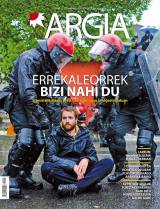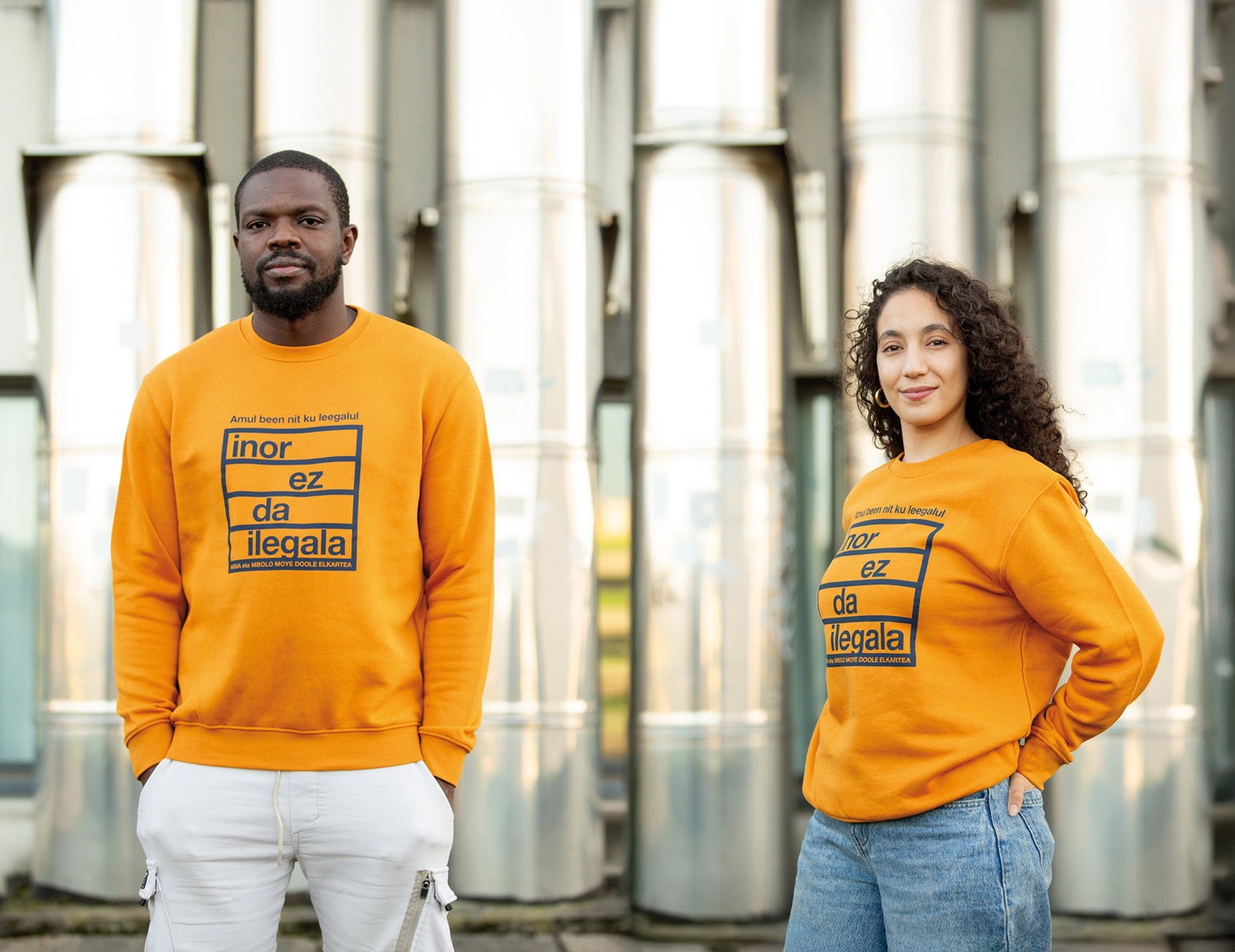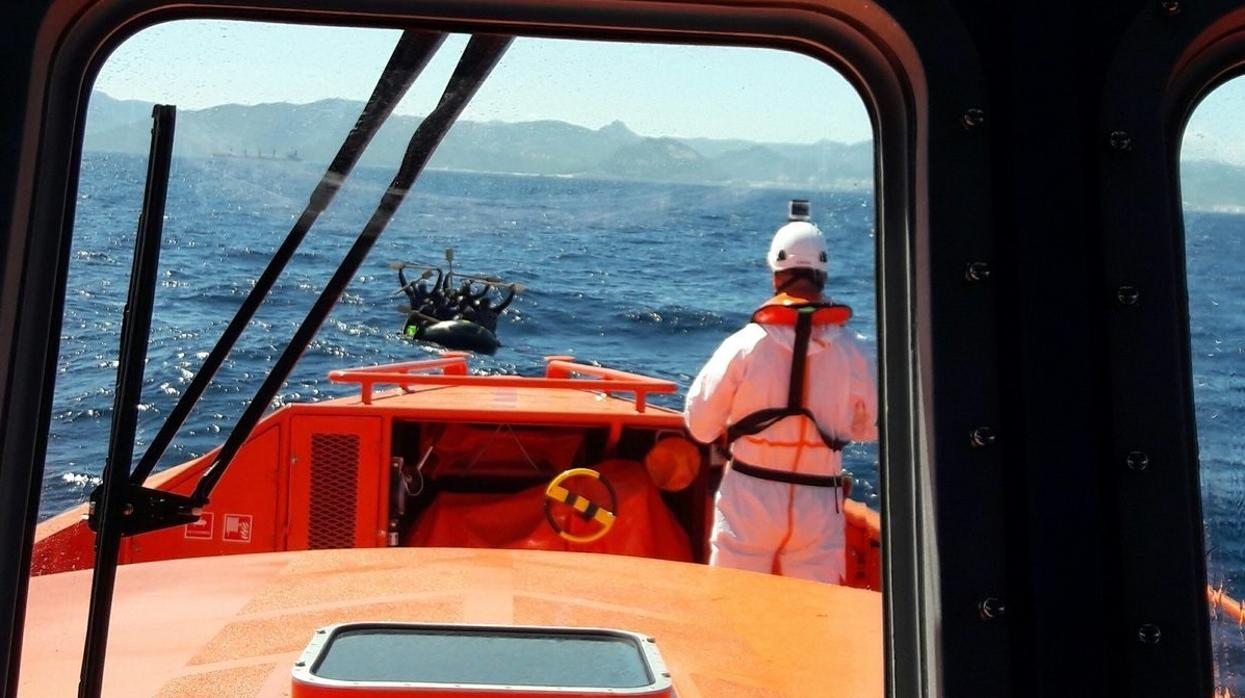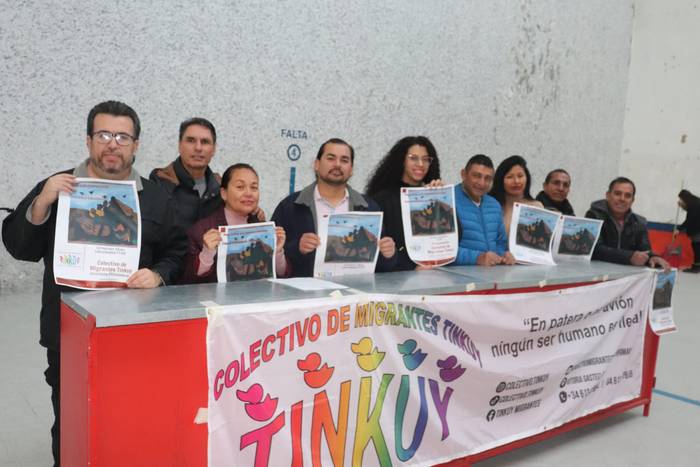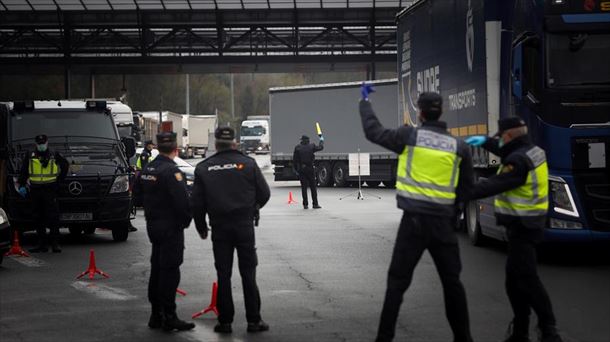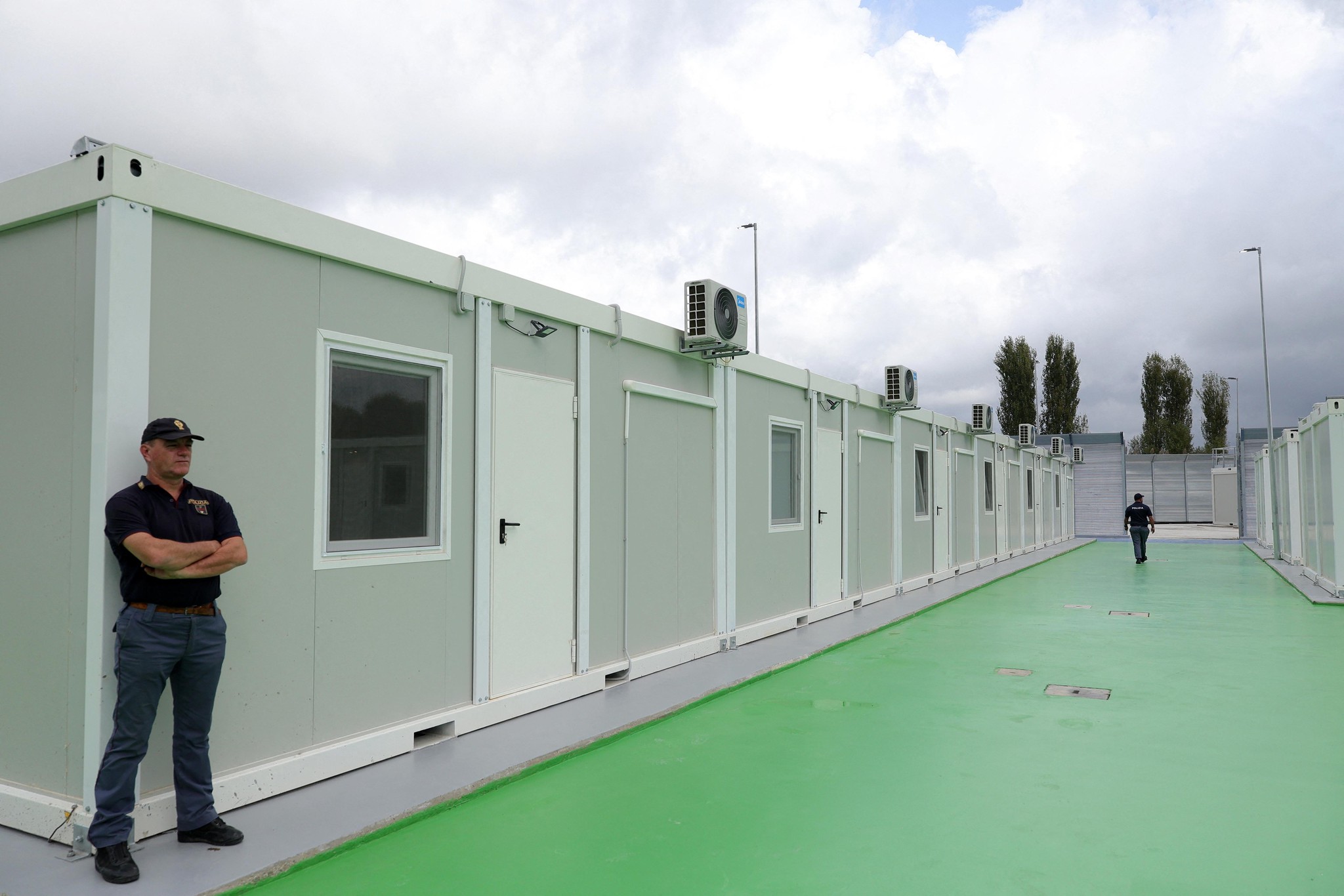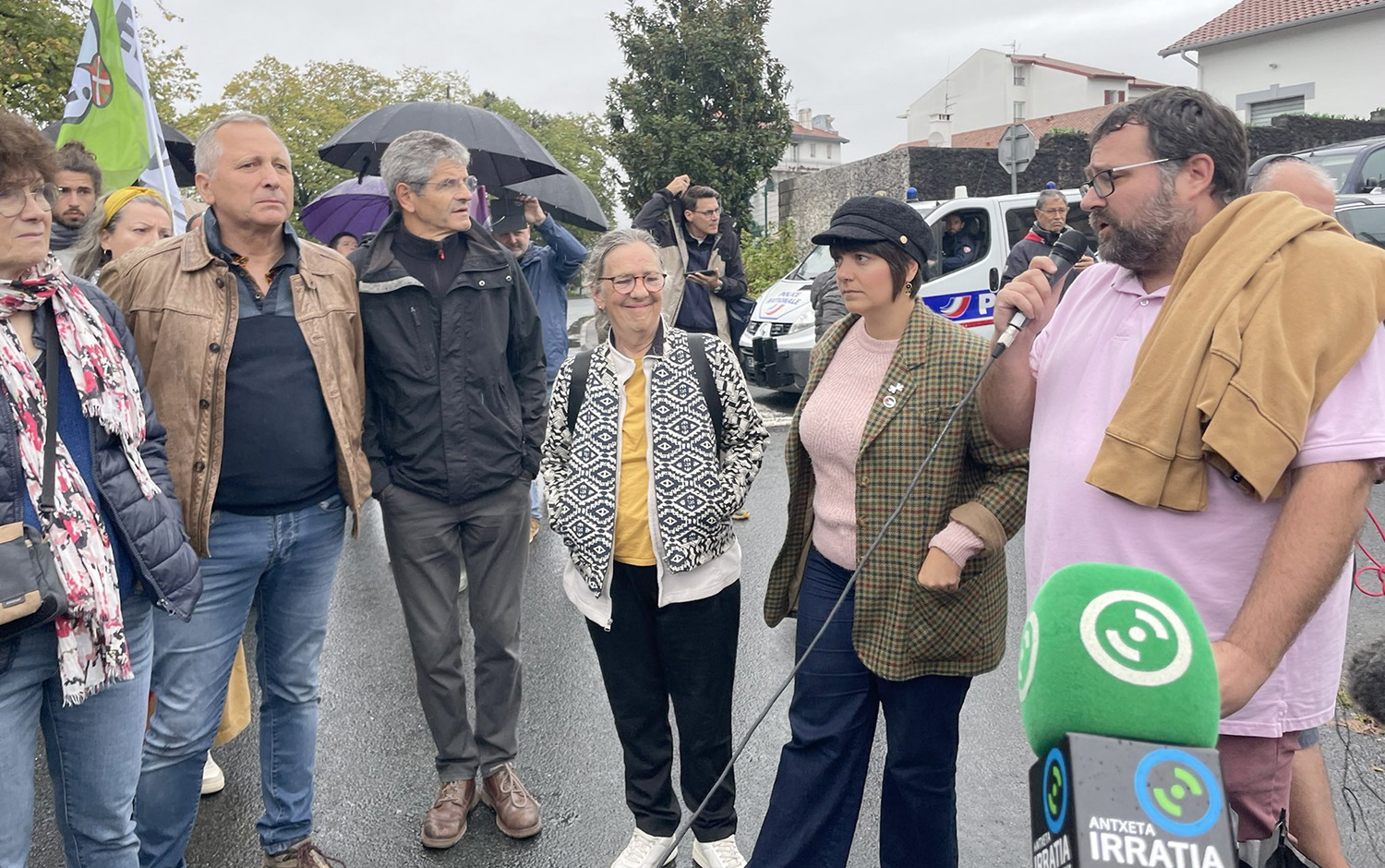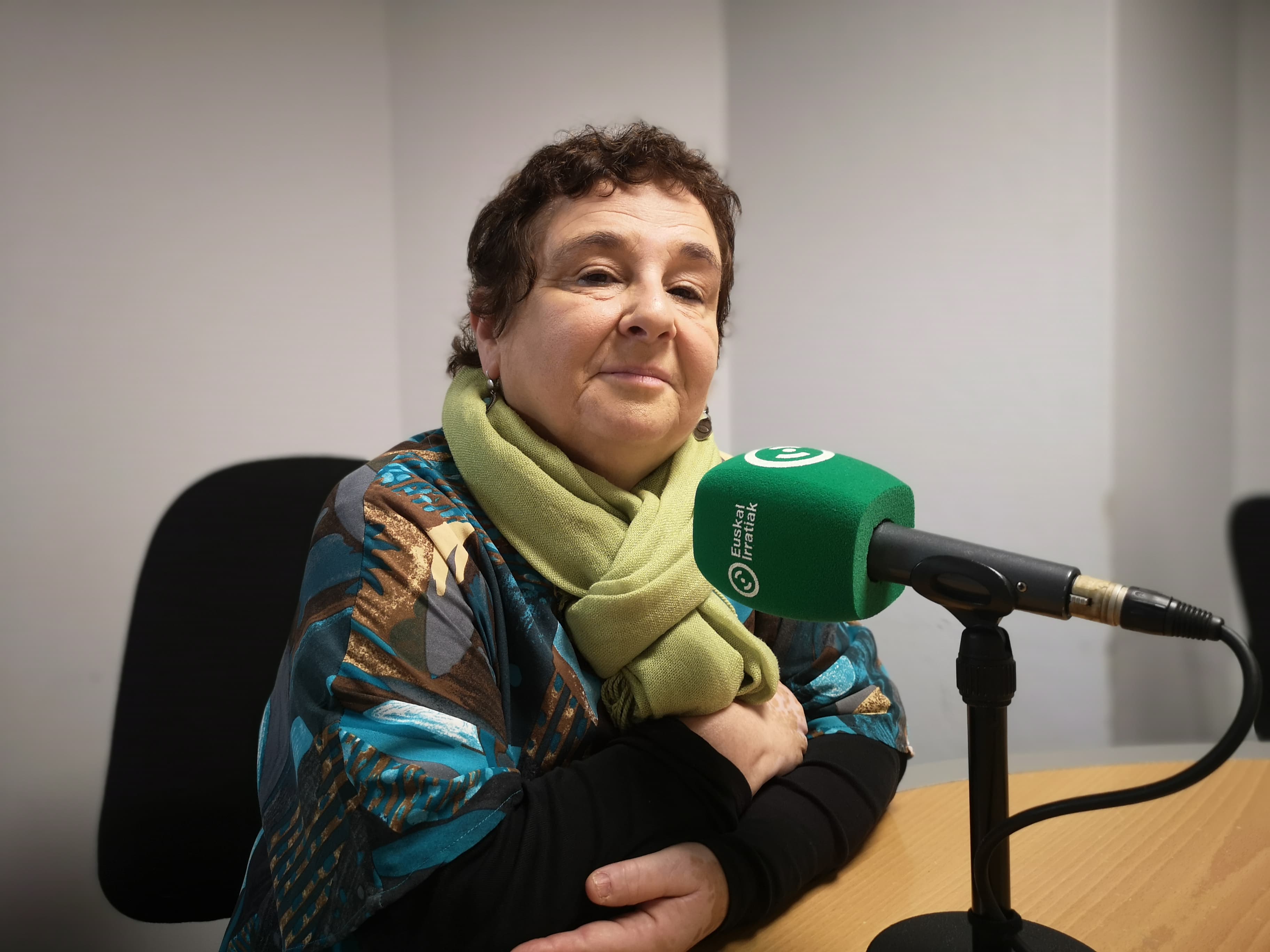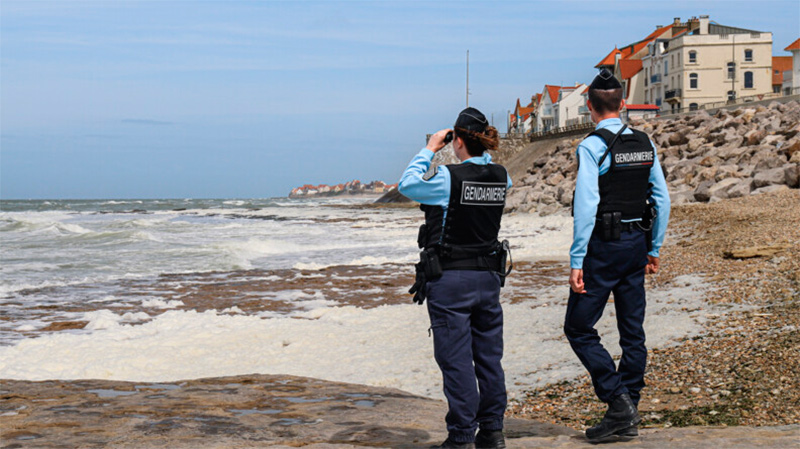Law versus the humanities
- His name is Cheikh Dieng, called ‘Cheikhouna’. On May 9, the Administrative Dispute Tribunal No. 2 of Navarra ratified the expulsion of the Spanish State. At any time, the police can stop him and expel him from Pamplona, from the Txantrea, from his neighborhood he loves so much.
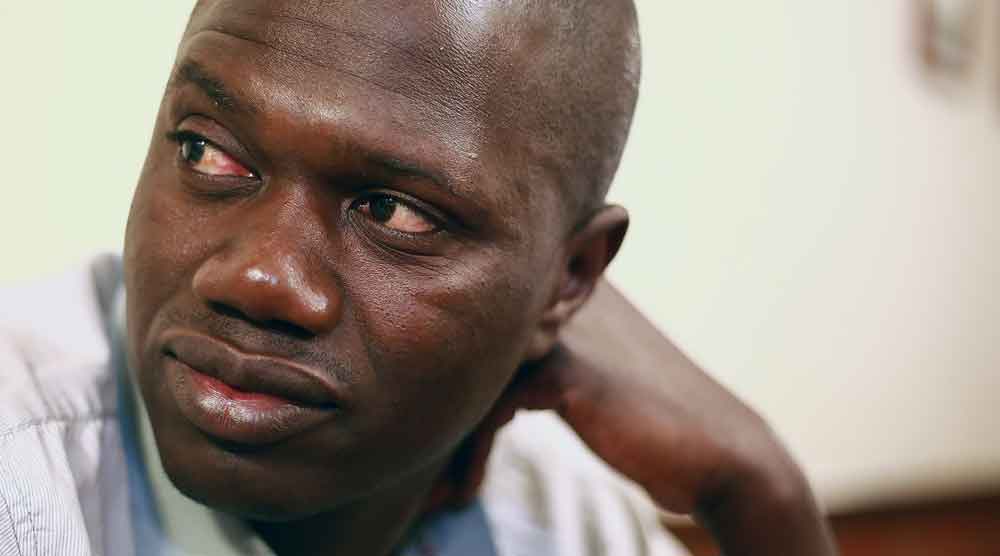
Since 2015, the rope he wants to be expelled from is around his neck, but he was waiting for the resource. The resolution has arrived and the rope squeezes his neck, hurts and smiles. “I have to think I’m going to be lucky, lucky,” a word that the one above me the unfortunate will do several times in conversation, luck.
On December 22, 2015, while Chantrea was selling Antsoain Street next door, the nightmare began: “It was 13:00, I went into a bar and three cops came behind me, I think they were still; they asked me the papers and I didn’t have them. I was arrested and I spent six hours at the police station. I left there with the expulsion order.”
The appeal that has been lodged at that time is the one that has been resolved at the moment. The appeal against the Supreme has been filed for 15 days since the judgment was given, and the lawyer will therefore use the time limit to extend the situation. “However, I am in danger; many of my acquaintances have been driven out while waiting for the resource.”
.jpg)
Working documents loop
It takes time, a short time. If you get work you can obtain documents, legality and thus avoid expulsion. But you can't look for work without documents: it's the maze in which the illegal migrant is lost. But Felipe Castle tells us he has an exit: “It’s difficult, but it’s possible to get jobs without documentation, first you have to get a temporary work agreement. That is what we are focused on, against the clock.” Felipe has also approached the conversation, belongs to the group of friends of the Cheikhouna de la Txantrea, which helps every corner.
In the Txantrea several initiatives have already been carried out in favour of the neighbor who has lived there for ten years. The last was the demonstration on 7 May, in which a thousand people protested against their expulsion order. Senegalese has been moved by the support given by the neighborhood. It is not the most common thing, in general, the immigrant has to face the expulsion order alone, accompanied in the usual by SOS Racism, but not with a whole neighborhood behind it. “Excited by the support, a friend cried at the demonstration,” Cheikhouna tells us. In the latter appearance, numerous members of the Senegalese community appeared, who are more afraid than usual. “In the neighborhood I feel strong, they always support me, they have always supported me, they are my family. I only have a thank you for the neighborhood,” he says firmly.
Touba-Pamplona
Cheikhouna lived in Touba, the second largest city in Senegal, with just over half a million inhabitants. “I worked in a textile company to help my parents, sewing clothes, but I didn’t have enough money and I thought I would leave.”
Senegal left on 9 September 2006. “It was Friday and at kayuko we went to the sea on September 20.” What about your parents? “They knew nothing, my father always told me not to enter a kayu, and the truth is that I didn’t have it in my head. But one day I had the opportunity and I told my father that I was going to spend a few days at a party and that I would come back. Of course it was a lie.”
“We were about 87 people in the kayuka and on the tenth day we ran out of fuel at sea. A Spanish fisherman saw us and called the Red Cross. The latter rescued us and took us to Tenerife on 30 September. We all got saved. From there we were sent to Miraflores, near Madrid, where we stayed 27 days in a center for migrants. When we were left free I went to Madrid as a street vendor, but the police stopped me several times and decided to leave.”
He asked a friend. “Hear, which village around me can I turn to so I don’t have problems?” “The Basque Country is close to here, it is north and it rains a lot,” he replied, and so I arrived here in December 2006.” Do you notice raciocinies in the streets here? “Racism is everywhere, even among black people, but here in the neighborhood I haven’t noticed it.”
Did the image of Europe on television influence it to attract it to Europe? “No, there those who have money see the channels of Europe, but I do not. I wanted to change my life and I thought I would come, work and do it in Europe, but no, it was a disappointment. He has to work as a street salesman, always after the documents to get a job, and I have not yet succeeded. Still, I keep fighting.” The family will return to Senegal when it has the necessary documentation to visit its family, unless it is previously embarked on an aeroplane and expelled. He has some kind of relationship with his family, “more by whatsapp than by phone, it’s free.”

“What’s There with Cheikho”
In dialogue, his case has become well known throughout the Basque Country and is nervous, even confused, in the whirlwind. At the end of the interview, a journalist from Diario de Navarra called him to interview him. On 8 May it was received by the Mayor of Pamplona/Iruña, Joseba Asiron. In the midst of the crudety of the situation there is no lack of humor and when the press saw the photo with the mayor, he soon began to hear himself in the Txantrea: “Hear, who is he with Cheikho?”
The Senegalese, with the stairs of the plane in the head, lives in a tight port. The fact that there are 10 years of complete integration in the neighborhood is not important for the documentary system, especially if you are black. Once again, the courts have placed legality above humanity. Cheikhouna is still looking for work and has the help of neighbors, but there is also a court order, if at any time he falls on top of it. Who will come before, the job or the police? Nor is it easy to understand how to smile in this situation. He is clear that, in any case, he will continue to seek luck.
I started to mentally write my article while I was in the car. I usually have the best ideas in the car while driving alone. I'm going to Bilbao, to the Arriaga theater. The Artedrama company is today staging the Miñan play. It's Friday, October 25.
Approaching the atrium of the... [+]
Unfortunately, we are well separated from travelling and migrating. In the case of migrations, the process does not end either when reaching the intended locality, or when obtaining permission to reside in another town, it can take many years of their lives, decades, until they... [+]
"Segurtasun gehiago, inmigrazio gutxiago". Bruno Retailleau barne ministro frantsesa argi mintzatu da, kargua hartu berritan. Etorkinen gaineko kontrola azkartu nahi du Michel Barnier lehen ministro eskuindar-kontserbadorearen gobernuak, eta jada Retailleauk aitzinatu... [+]
She is a mother of Peru and could not start learning Euskera from scratch, as we have read in the newspapers (it was a lie): here perhaps yes, because here the city council guarantees that right (Hernani). If he comes to me at the end of the course (as they have come to me),... [+]









